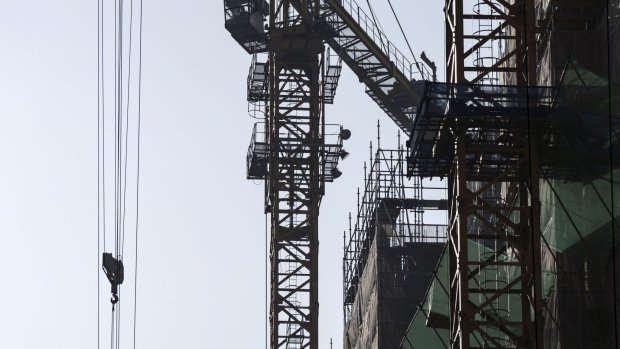Apr 29, 2024
Builder CIFI Proposes Key Debt Terms With as Much as 85% Haircut
, Bloomberg News

(Bloomberg) -- Distressed developer CIFI Holdings Group Co. said it has reached an agreement with a key creditor group on some terms of a restructuring plan that could cut the principal on its debt by as much as 85%, a reversal from the company’s expectations of “no haircut” a year ago.
Shanghai-based CIFI’s latest proposal involves reducing debt by around $3.3 billion to $4 billion, while asking bondholders to swap existing debt for new notes with tenors ranging from two to six years, according to a Hong Kong exchange filing dated April 29.
CIFI’s shares rose as much as 28% in Hong Kong trading on Monday, alongside a broader rally in China property stocks. A Bloomberg Intelligence gauge of builders’ shares jumped more than 12%, the most since November 2022, hopes of more policy easing.
CIFI, which first defaulted on a convertible bond in October 2022, laid out six options for debt reduction, one of which with as much as an 85% haircut, or loss on the principal, if creditors choose to be paid in cash. CIFI said it is still in talks with the creditors and hasn’t entered into any legally binding agreement.
The developer last laid out a preliminary offshore debt plan in March 2023, saying that it expected no haircut. It also set a seven-year limit on how long the debt could be extended.
Of the six options CIFI set out in the latest filing, five involved haircuts of between 50% and 85%. The maturities in certain options have also been extended to seven to nine years if certain contracted sales benchmarks aren’t met.
The worsening restructuring terms are symptomatic of the deteriorating situation in China’s real estate sector. Developer sales have continued to slump and are expected to fall a further 30% in April from a year ago, according to Bloomberg Intelligence estimates. Defaulted companies such as CIFI face even greater obstacles in selling units amid wariness from potential home buyers.
CIFI said it has 68 projects in China that have been shortlisted for government funding aid. One of its projects was granted 150 million yuan ($20.7 million) of new funding, it said.
©2024 Bloomberg L.P.





